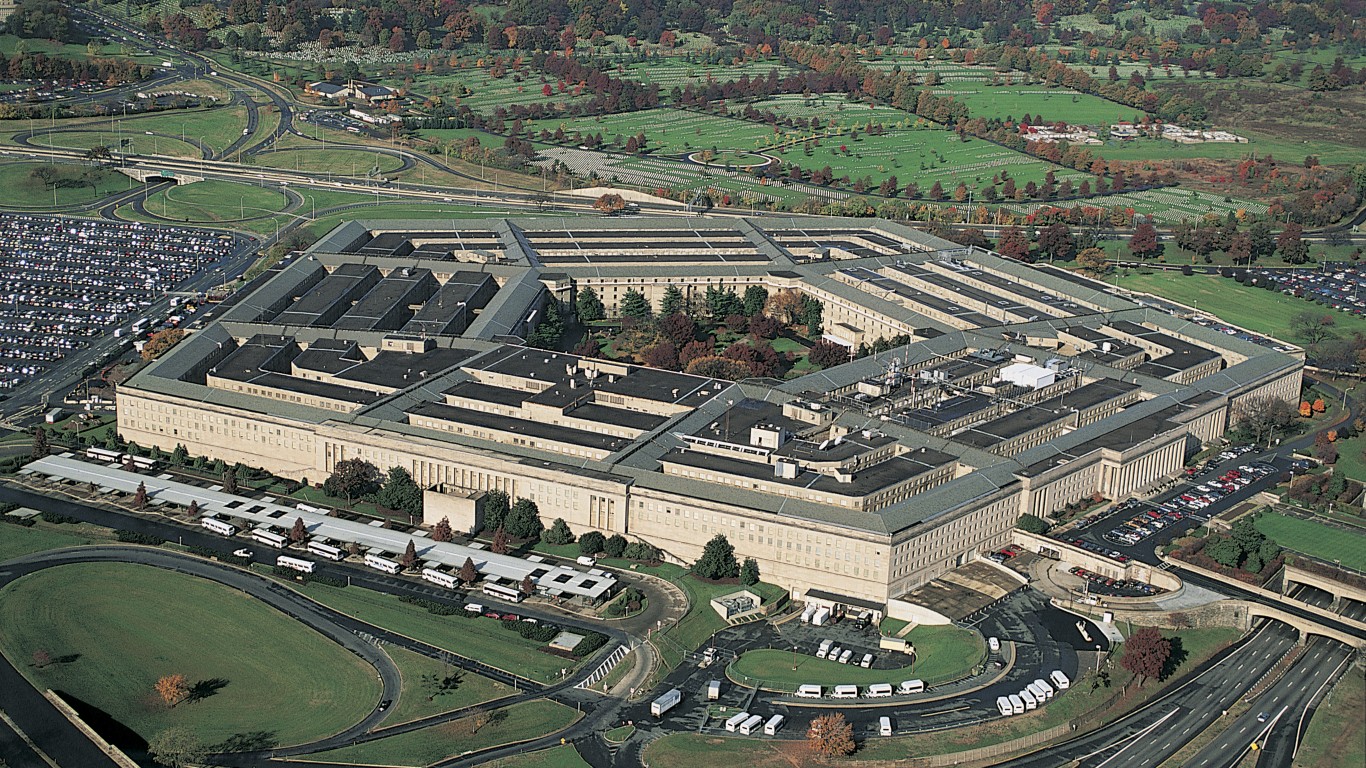
The United States has spent more than three-quarters of a trillion dollars on defense annually in recent years, and in March, the White House asked Congress to authorize a Pentagon budget of $842 billion for fiscal year 2024 that begins in October. (Here are 35 billion dollar weapons in the 2024 U.S. military budget.)
The U.S. Treasury reported that in FY 2022 the Department of Defense was the fourth-largest recipient of federal government spending after the Department of Health and Human Services, the Social Security Administration, and the Treasury Department. The defense budget is larger than what the federal government spends on veterans’ affairs, agriculture, transportation, civilian federal workers, and homeland security combined.
The executive branch is proposing that $315 billion of next year’s defense budget be spent on procurement, research and development, testing, and evaluation, the part of the budget that includes buying and developing future defense systems intended to maintain the country’s global military dominance.
To Identify the U.S. military’s 15 future weapons, 24/7 Wall St. reviewed the U.S. Department of Defense Budget FY 2024 Request, which contains an itemized list of major weapon systems expenditures over the last two fiscal years, as well as the requested budget for 2024. The weapons systems on this list are those the military is spending the most on in research, development, testing, and evaluation and only include only those still in development and that are not being delivered this coming fiscal year. The detailed breakdowns of where in the military each system will go, come directly from the DOD budget proposal document, Program Acquisition Cost By Weapons System.
These 15 systems include four aircraft types: advanced pilot training jets, new airborne warning and control system aircraft, next-generation long-range stealth bombers, and two new presidential aircraft with the call sign “Air Force One.” (These are the 25 most expensive weapons in the U.S. military budget next year.)
America’s nuclear triad is receiving upgraded Trident II submarine-based nuclear missiles and the Sentinel land-launched intercontinental ballistic missile, which will replace the Minuteman III.
The most expensive of these 15 weapons systems is the overhead persistent infrared, or OPIR, space based missile warning systems, which replaces the existing missile tracking system that went into service in the mid-1990s.
In total, the executive branch would like Congress to authorize $25.7 billion for the upcoming fiscal year on these 15 weapons of the future.
Here are the costliest U.S. weapons of the future that are currently in development.
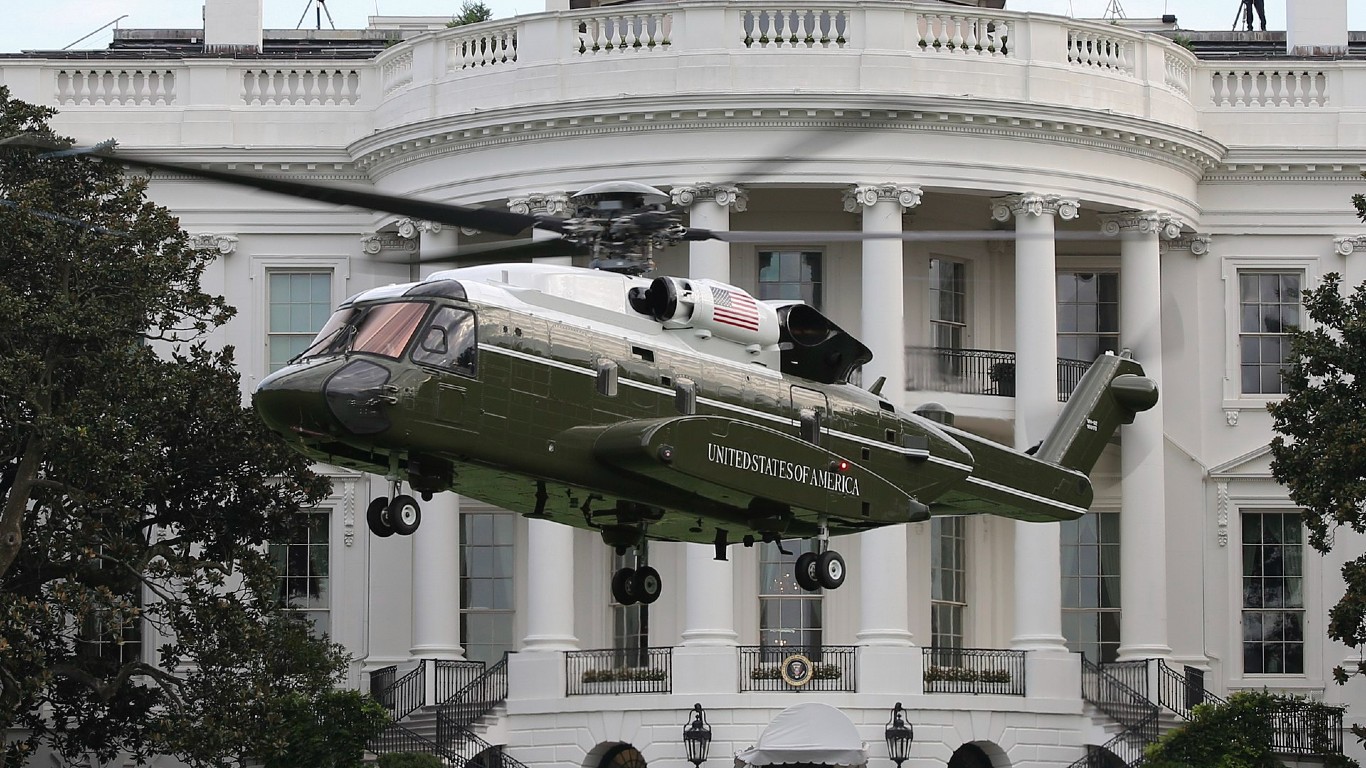
15. VH-92A Presidential Helicopter
> R&D, testing, and evaluation budget, FY 2024: $35.4 million
> Program spending, FY2022-FY2024: $277.5 million
> Service branches: Navy / Marine Corps
> Primary contractor(s): Sikorsky Aircraft
The country’s executive leaders will soon be shuttled around in an all-new presidential chopper as the government replaces its fleet of VH-3Ds and VH-60s, which the U.S. Marine Corps operated since the 1970s and 1980s, respectively. The VH-92A Patriot presidential helicopter is based on Sikorsky’s S-92A commercial helicopter. In March, VH-92A landed in Las Vegas ahead of a visit by President Joe Biden, but only in “standby capacity,” according to The Warzone news site. The chopper’s call sign is Marine One when the president is on board and Marine Two if it is carrying the vice president.
[in-text-ad]
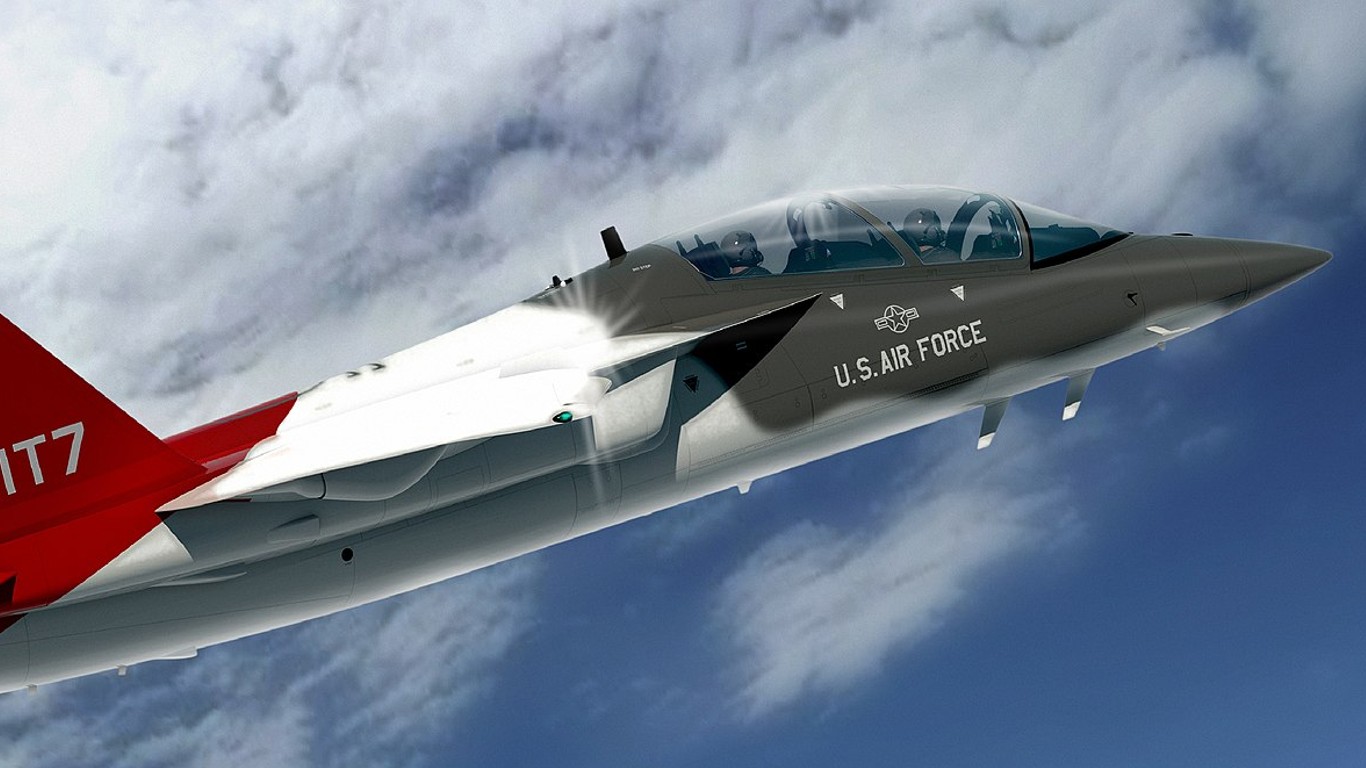
14. T-7A Advanced Pilot Training
> R&D, testing, and evaluation budget, FY 2024: $77.3 million
> Program spending, FY2022-FY2024: $303.7 million
> Service branches: Air Force
> Primary contractor(s): Boeing
The Air Force announced in March 2015 program requirements for the so-called T-X advanced pilot training program. The first of these advanced trainer jets, officially known as the T-7A Red Hawk, rolled off the assembly line in April 2022, reported the news site Airforce Technology, but they have yet to begin replacing the aging fleet of nearly 1,200 T-38 Talons, which first entered service in 1961. The T-7A has been fraught with delays. The first T-7As will go into service in early 2027, three years later than planned and eleven years after the first T-7A prototype had its maiden flight.
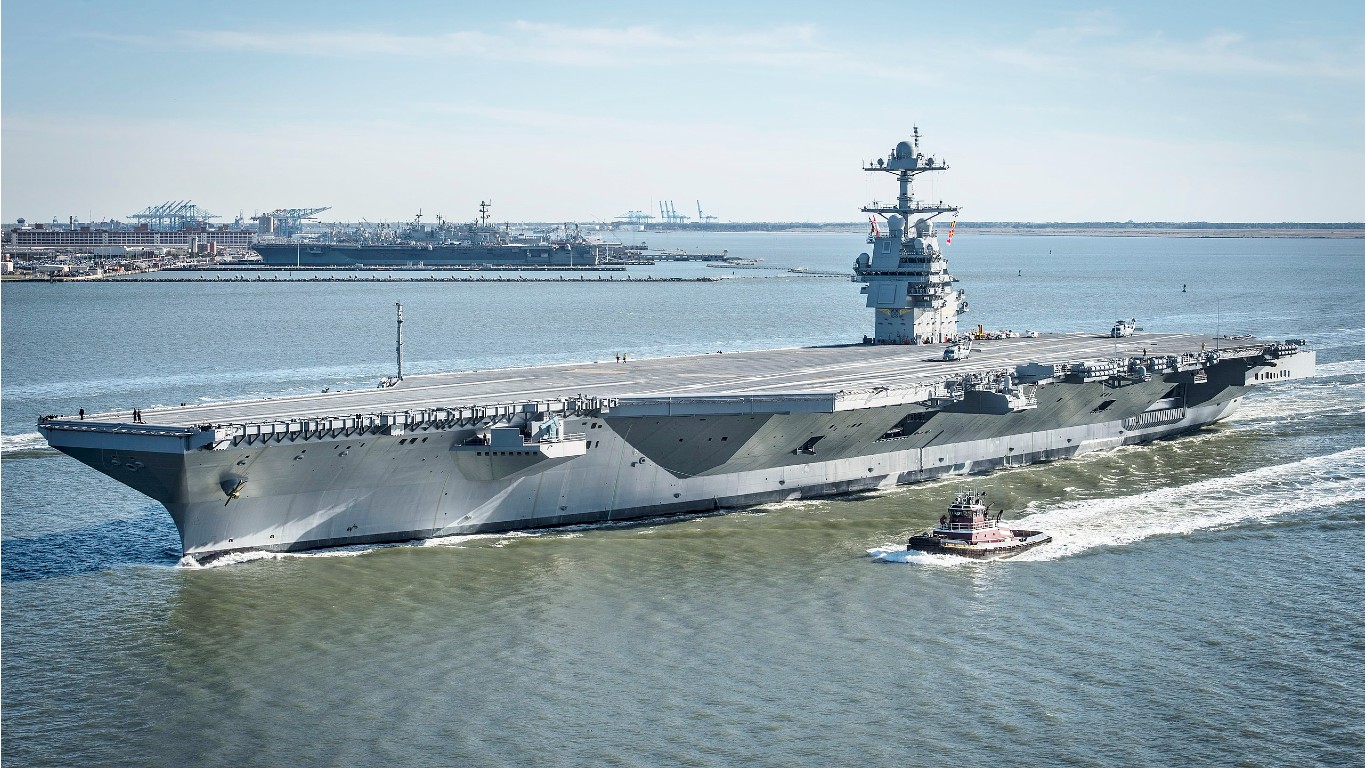
13. CVN 78 Gerald R. Ford Class Nuclear Aircraft Carrier
> R&D, testing, and evaluation budget, FY 2024: $118.2 million
> Program spending, FY2022-FY2024: $9.3 billion
> Service branches: Navy
> Primary contractor(s): Lockheed Martin Missiles and Fire Control
In May, the first of 10 planned Gerald R. Ford class carriers embarked on its first full-length deployment as the Ford Carrier Strike Group headed to join the U.S. 6th Fleet in the Mediterranean. This new carrier class will eventually replace the existing Nimitz-class vessels and will be the first nuclear-powered U.S. aircraft carrier to completely eliminate steam service, which has been used to power the catapults used to launch aircraft from the deck. According to the DOD, Ford carriers are more efficient with “improved warfighting capability, quality-of-life improvements for sailors, and reduced total ownership costs.”
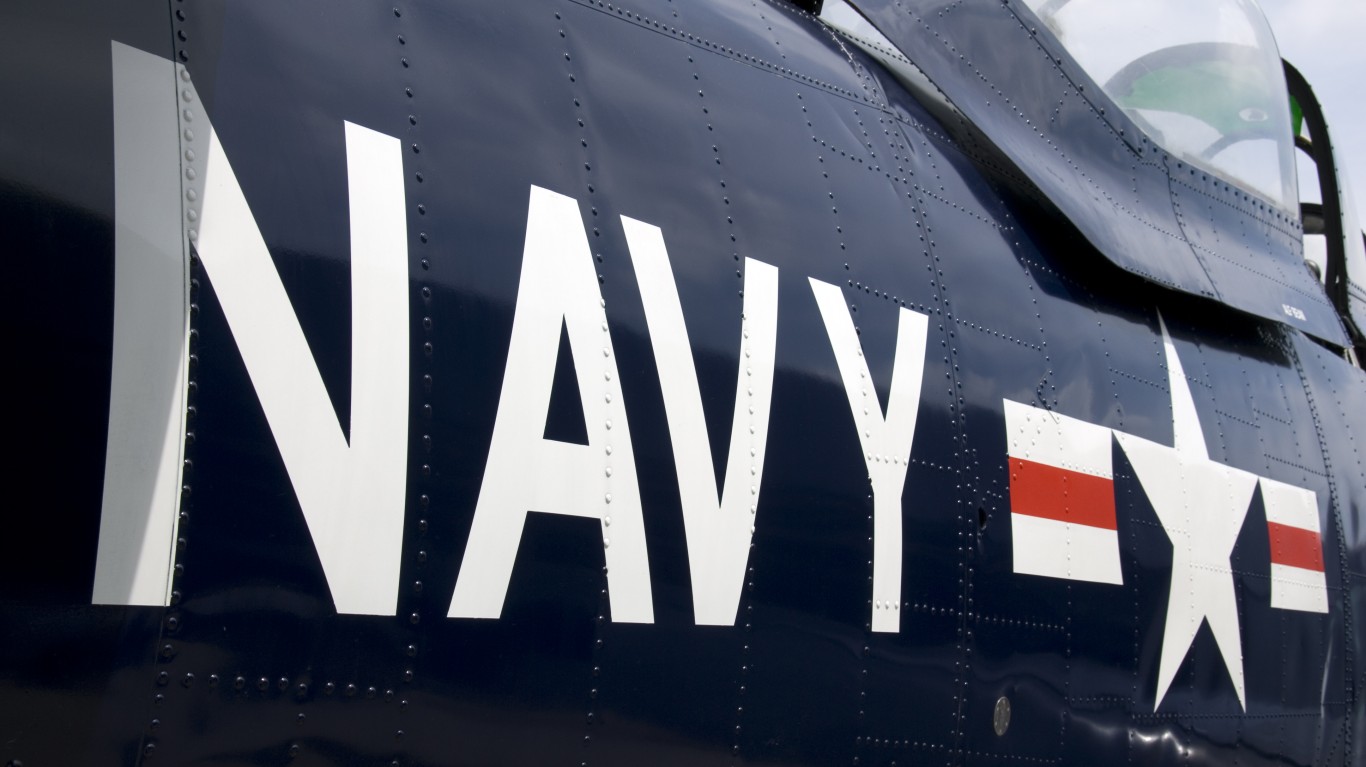
12. Medium and Large Unmanned Surface Vessels
> R&D, testing, and evaluation budget, FY 2024: $237.9 million
> Program spending, FY2022-FY2024: $756.6 million
> Service branches: Navy
> Primary contractor(s): To be determined
These U.S. military drones of the sea currently in development are considered by the Navy to be lower cost than comparable crewed warships, with high endurance to rough sea conditions and configurable for carrying different types of payloads. These vessels are designed to launch missiles against sea and land targets, with smaller variants used for planting anti-submarine mines, according to a Congressional Research Service report released in April. These vessels could be controlled “in-the-loop” with continuous observation and control by operators, or “on-the-loop” with autonomous operation in which operators are prompted for action or intervention.
[in-text-ad-2]
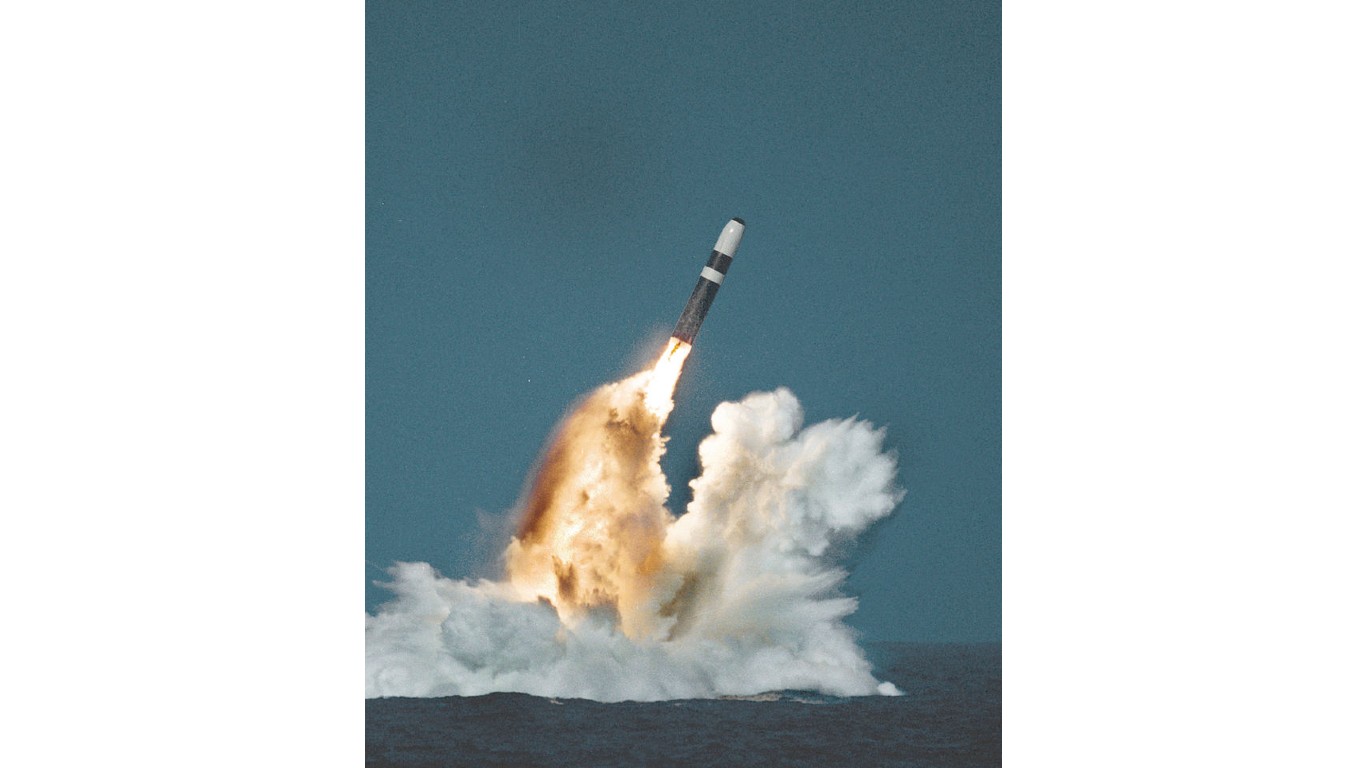
11. Trident II Ballistic Missile Modifications
> R&D, testing, and evaluation budget, FY 2024: $321.6 million
> Program spending, FY2022-FY2024: $5.2 billion
> Service branches: Navy
> Primary contractor(s): Lockheed Martin
Trident II submarine-launched long-range, high-precision ballistic missiles have been in service since 1990, providing the U.S. with one of its most important tools in its nuclear-deterrent arsenal. The missiles can be launched from Ohio- and Vanguard-class submarines, each capable of striking multiple targets with nuclear warheads, making them potent “first-strike” weapons. The DOD is redesigning these missiles for deployment on Columbia-class subs.
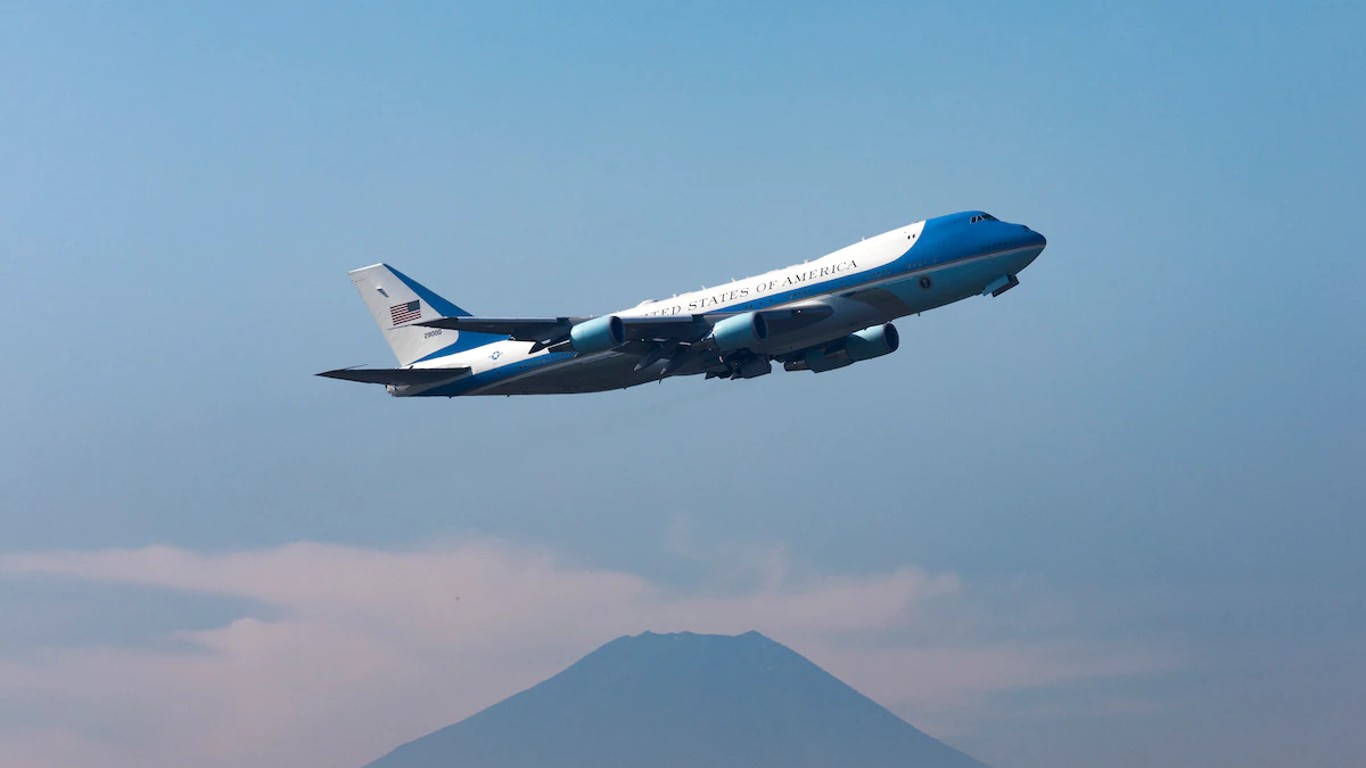
10. VC-25B Presidential Aircraft Recapitalization
> R&D, testing, and evaluation budget, FY 2024: $490.7 million
> Program spending, FY2022-FY2024: $1.0 billion
> Service branches: Air Force
> Primary contractor(s): Boeing
Modifications began on the new presidential aircraft with the call sign “Air Force One” in February 2020. The two VC-25Bs are modified Boeing 747-8s and are expected to remain in service for 30 years when they go into service in 2024, providing the president, staff, and guests with the same security and communications capabilities that are available in the White House. Among other features, the modified planes will have a mission communications system, military avionics, a self-defense system and, of course, executive interior amenities.
[in-text-ad]
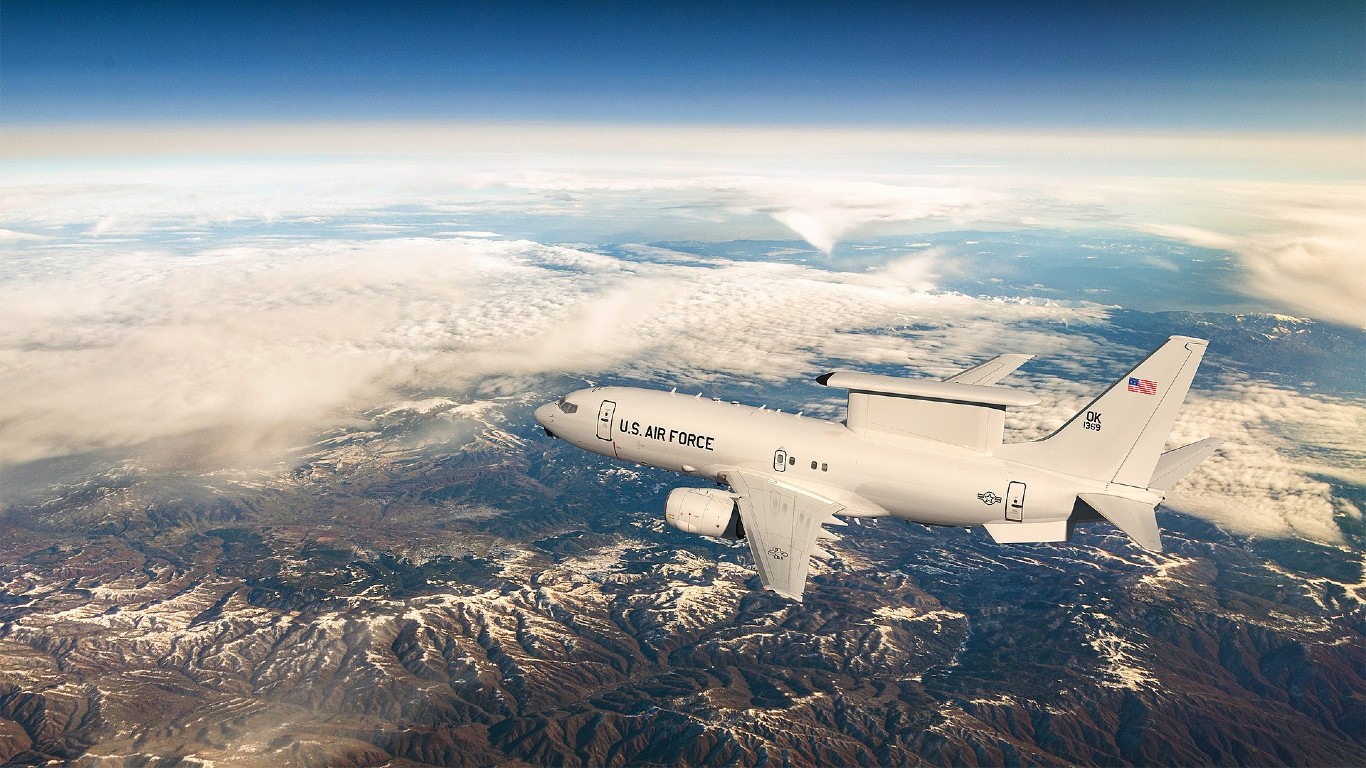
9. E-7A Airborne Warning and Control System Replacement
> R&D, testing, and evaluation budget, FY 2024: $681.0 million
> Program spending, FY2022-FY2024: $1.1 billion
> Service branches: Air Force
> Primary contractor(s): Boeing
Last year, the federal government awarded Boeing a contract to begin replacing the E-3 Sentry Airborne Warning and Control System. With its long-range airborne radar system, the AWACS is basically a high-altitude, long-range flying radar system that can detect and track targets and perform command and control operations by directing aircraft to their targets. The E-7 is based on Boeing’s commercial 737-700 aircraft and will eventually replace the current fleet of 707-based E-3s, providing the Air Force with more advanced capabilities.
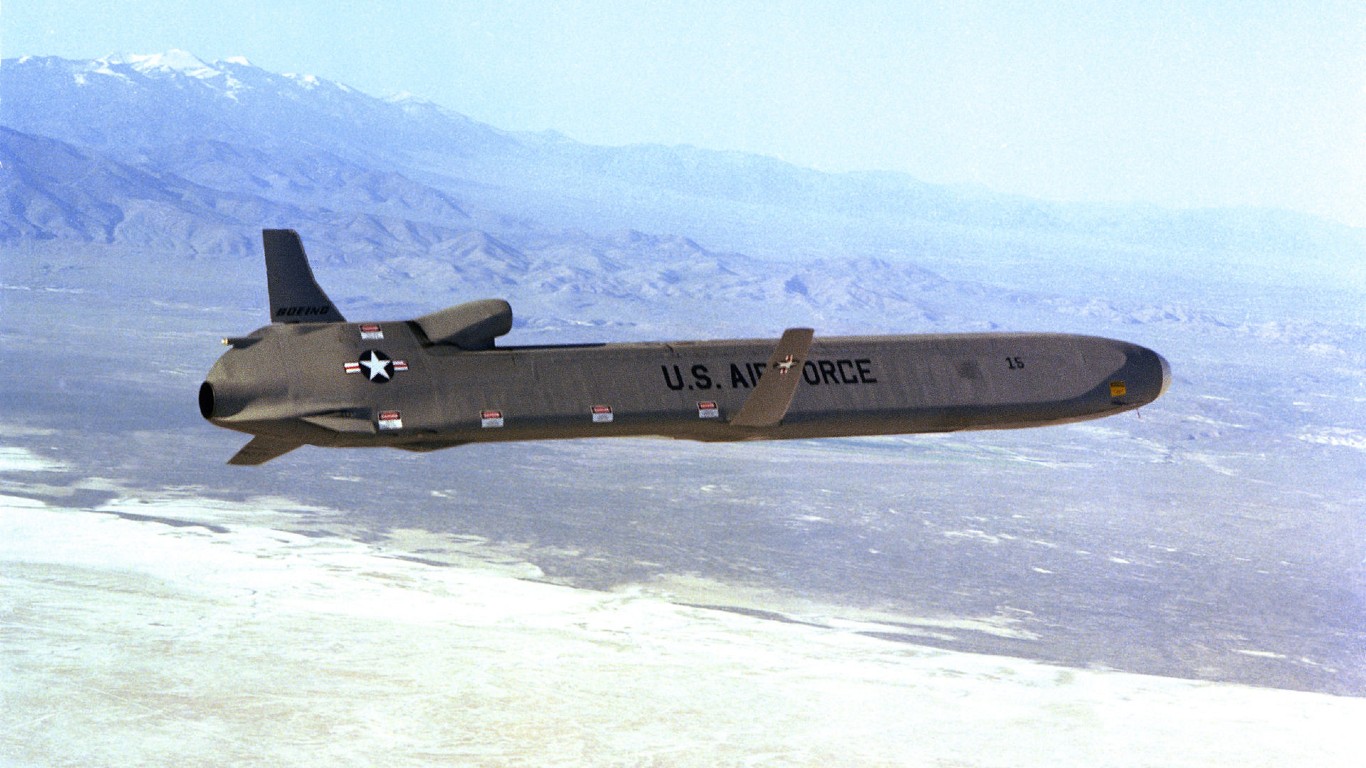
8. Long Range Stand-Off Weapon (LRSO)
> R&D, testing, and evaluation budget, FY 2024: $911.4 million
> Program spending, FY2022-FY2024: $2.5 billion
> Service branches: Air Force
> Primary contractor(s): Raytheon
The LRSO nuclear-armed air-launched cruise missile is the replacement for the AGM-86B Air Launched Cruise Missile that entered service in 1983 and which the Air Force says is increasingly incapable of penetrating more advanced air defense systems. The new cruise missile has been in the works since 2012 and entered its engineering phase in 2021. Work on the new cruise missile is expected to be completed by 2027.
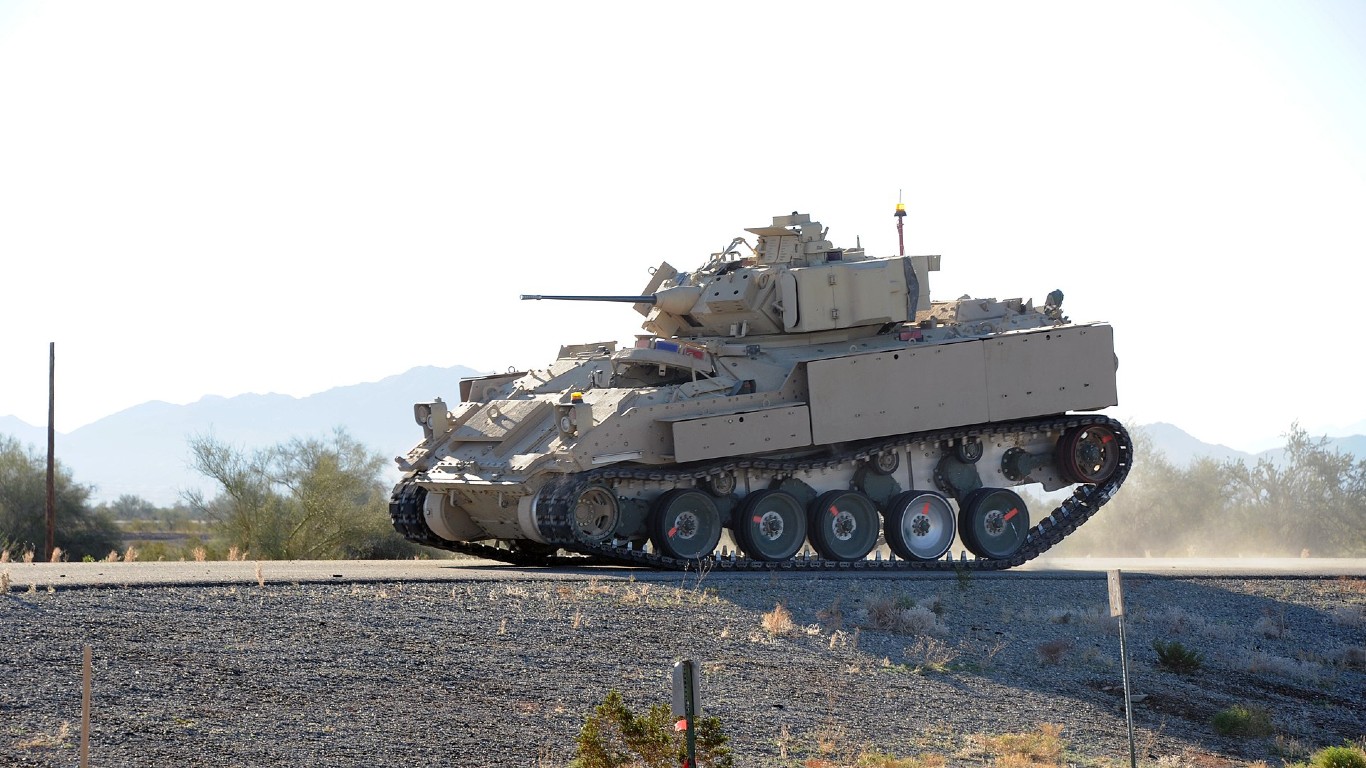
7. Optionally Manned Fighting Vehicle (OMFV)
> R&D, testing, and evaluation budget, FY 2024: $996.7 million
> Program spending, FY2022-FY2024: $1.7 billion
> Service branches: Army
> Primary contractor(s): To be determined
The 80,000-pound M2A4 Bradley Fighting Vehicle is a high-tech, armored vehicle that protects mechanized infantry with mounted firepower from a 25mm cannon, a large machine gun, and TOW anti-tank missiles. While it will continue to be used by the Army for years to come, the Bradley will eventually be replaced by the Optionally Manned Fighting Vehicle, which the DOD says will “provide increased warfighting capability.” For example, the OMFV will destroy targets at a longer range than the Bradley and will contain some semi-autonomous maneuvering systems.
[in-text-ad-2]
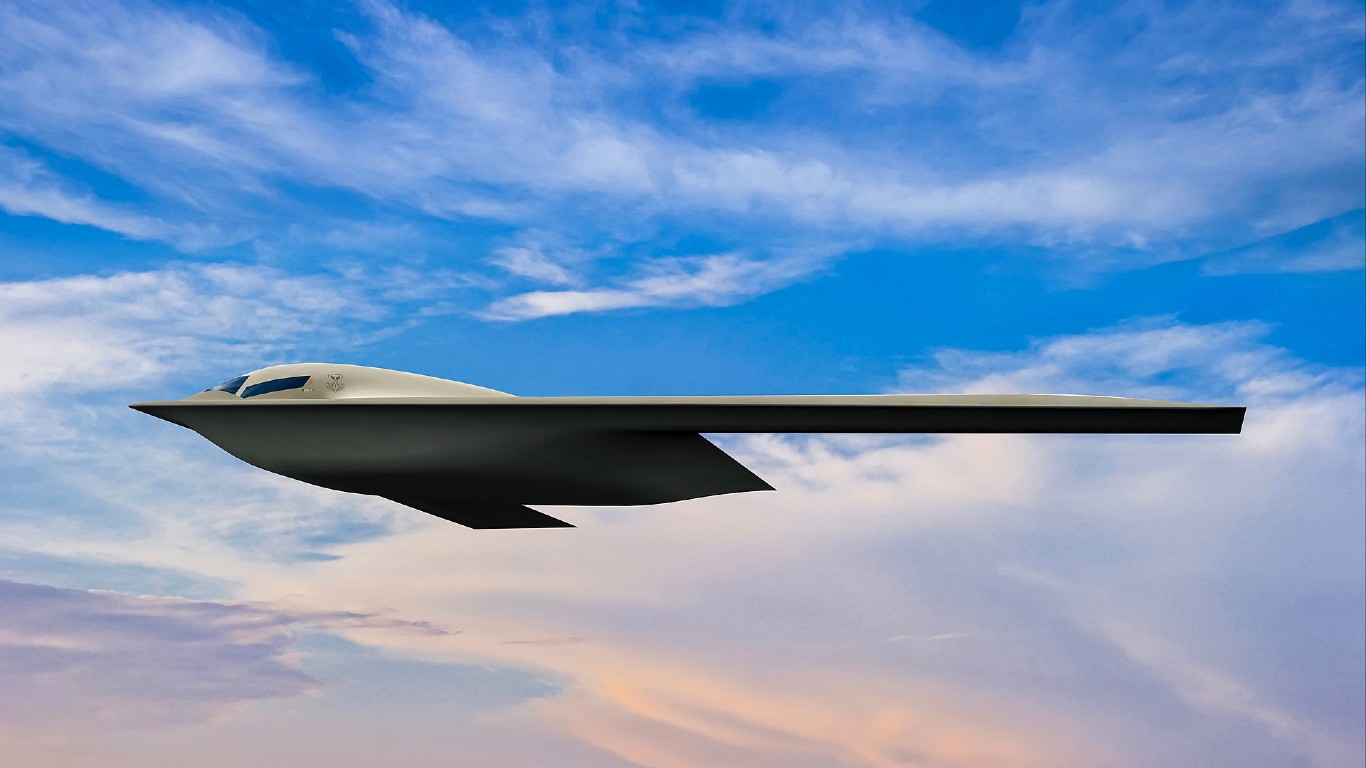
6. B-21 Raider
> R&D, testing, and evaluation budget, FY 2024: $3.0 billion
> Program spending, FY2022-FY2024: $13.0 billion
> Service branches: Air Force
> Primary contractor(s): Oshkosh Defense, LLC, AM General, LLC
The B-21 Raider will replace the B-1 and B-2 Stealth bombers. It will have the same boomerang-shaped “flying wing” design as the B-2, which increases the aircraft’s range. According to Northrop Grumman, the B-21 benefits from more than three decades of strike and stealth technology and “forms the backbone of the future of U.S. air power.” Like its predecessors, the bomber can deliver both conventional and nuclear payloads.
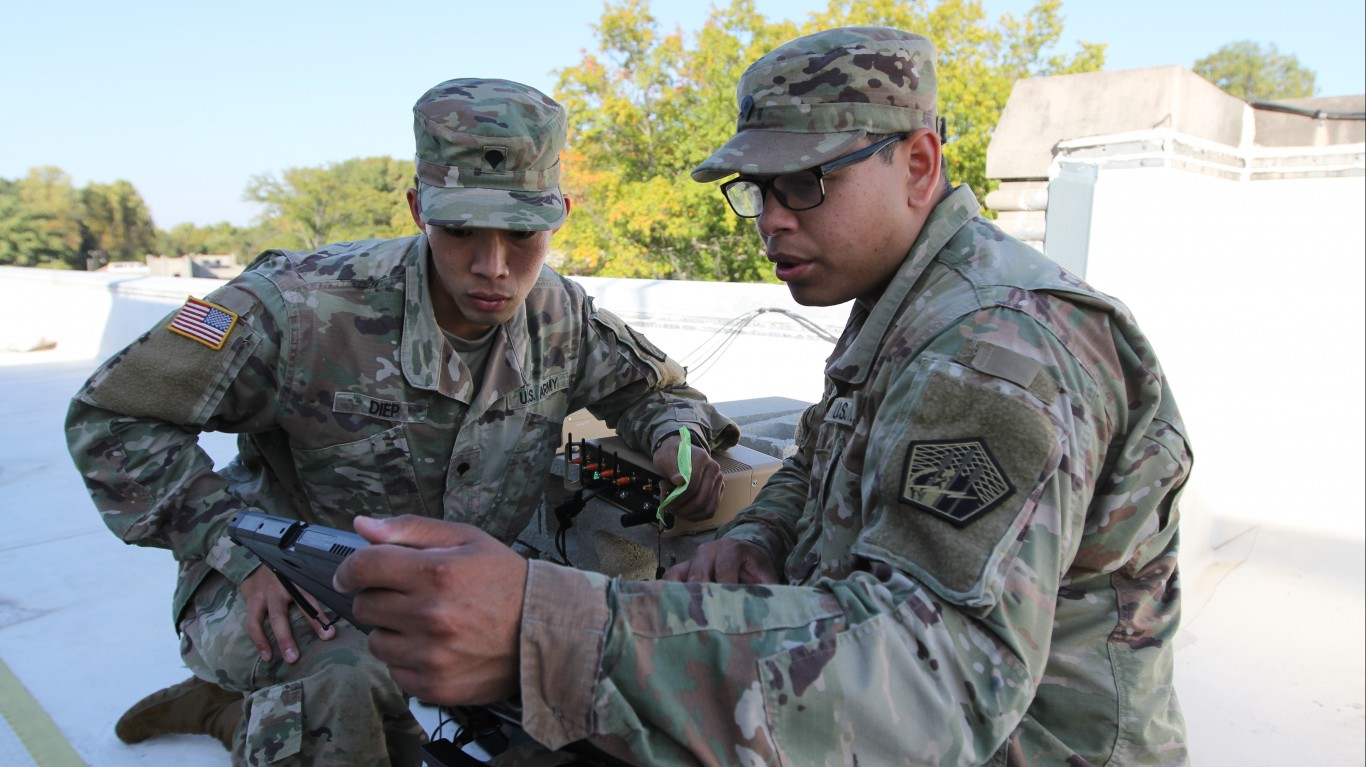
5. Cyberspace Activities
> R&D, testing, and evaluation budget, FY 2024: $3.0 billion
> Program spending, FY2022-FY2024: $10.7 billion
> Service branches: Joint Service
> Primary contractor(s): Raytheon, Lockheed Martin, BAE Systems, L3Harris
The future of warfare will become increasingly digital and automated, with greater demand for cyber attack and defense capabilities. The DOD is making cyberspace capabilities one of its major priorities, in part to force adversaries to increase their cyberspace operations costs. “The FY 2024 program continues investments in cybersecurity, cyberspace operations (including the cyber mission force), and cyber research and development,” the DOD noted in the budget proposal. The Cyber Mission Force is the action arm of the U.S. Cyber Command.
[in-text-ad]
4. Ground-based Midcourse Defense (GMD)
> R&D, testing, and evaluation budget, FY 2024: $3.1 billion
> Program spending, FY2022-FY2024: $7.3 billion
> Service branches: Joint Service
> Primary contractor(s): Raytheon Missiles & Defense
The complex and costly GMD is touted by Boeing as the only missile defense system capable of defending the entire United States homeland, including Alaska and Hawaii, against long-range ballistic missile attacks. It incorporates satellites, sea-based radar systems, and a command-and-control network across 15 time zones to take down these missiles with interceptor rockets that deploy kill vehicles. The DOD is spending billions to upgrade the GMD with next generation interceptors.
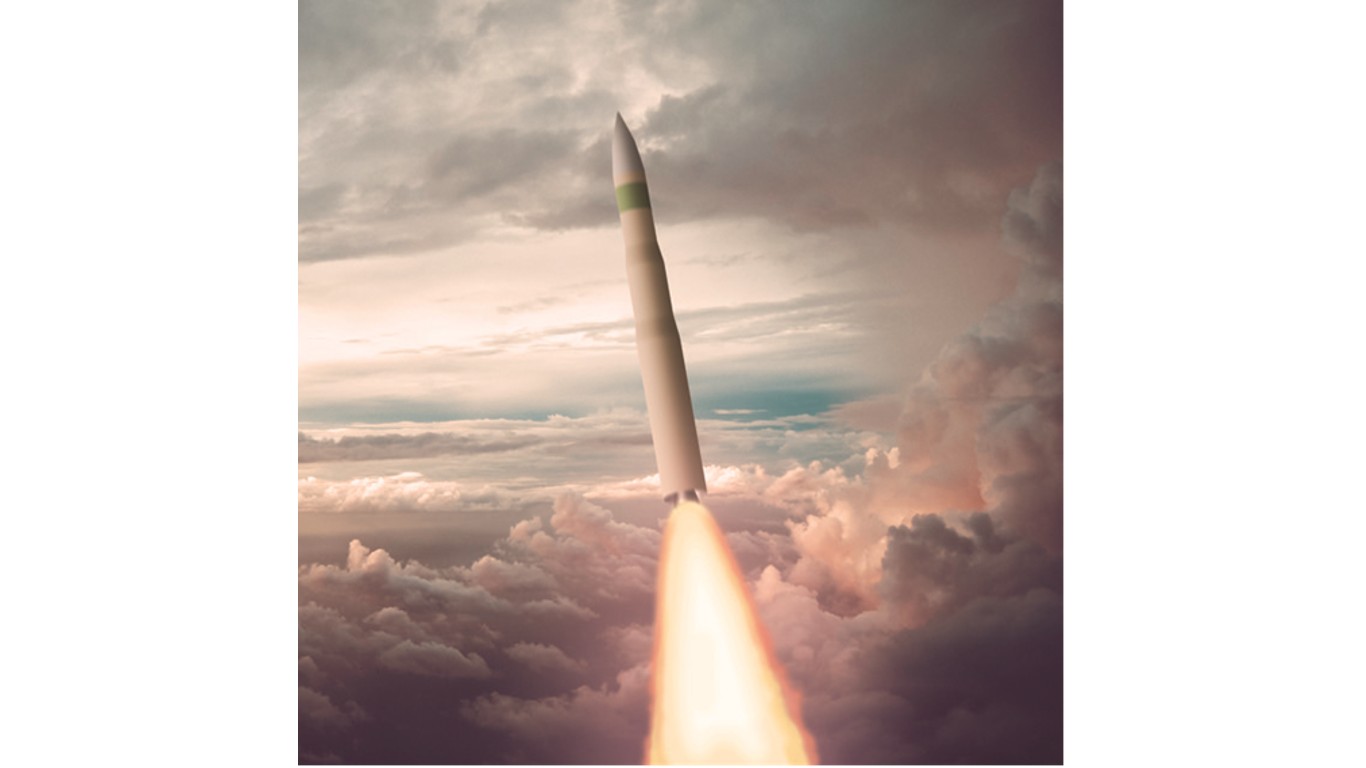
3. LGM-35A Sentinel
> R&D, testing, and evaluation budget, FY 2024: $3.7 billion
> Program spending, FY2022-FY2024: $10.4 billion
> Service branches: Air Force
> Primary contractor(s): Northrop Grumman Aerospace Systems, Boeing Defense
The LGM-35A Sentinel is replacing the LGM-30 Minuteman III intercontinental ballistic missile as part of America’s nuclear triad that consists of these land-launched nuclear missiles, submarines armed with nuclear missiles, and aircraft armed with nuclear bombs and missiles. The DOD says the Sentinel will have next-generation flight, command-and-control, and launch systems, including upgraded silos, control centers, and other ground infrastructure.
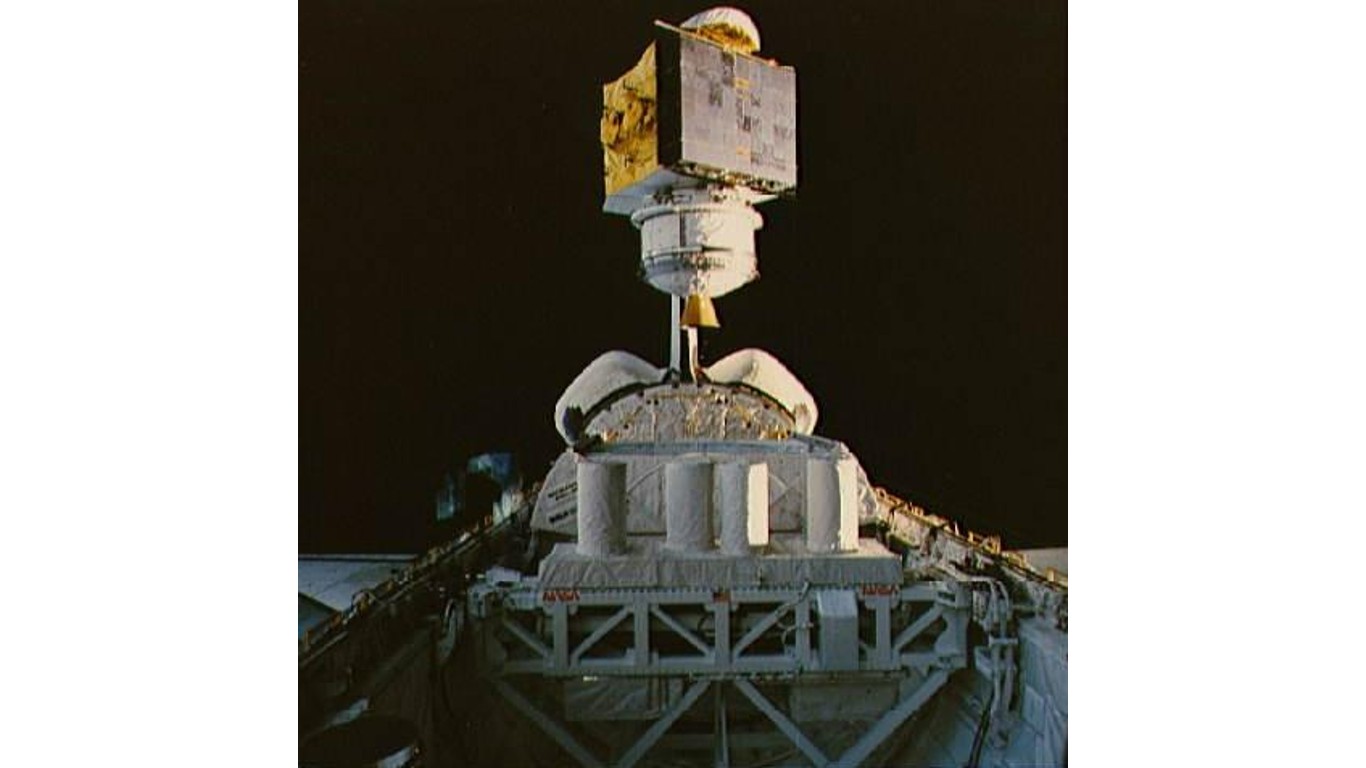
2. Satellite Communications (SATCOM) Projects
> R&D, testing, and evaluation budget, FY 2024: $4.1 billion
> Program spending, FY2022-FY2024: $11.0 billion
> Service branches: Space Force
> Primary contractor(s): The Boeing Company
The U.S. is trying to stay ahead of space-based defense by developing a secretive new anti-jam satellite system, including the development of an advanced payload launch vehicle to deliver defense satellites into orbit. Testing of the system’s anti-jam capabilities, designed to thwart attempts to interrupt communications, took place at a Boeing facility in El Segundo, California, ahead of next year’s launch of a satellite, Space News reported.
[in-text-ad-2]
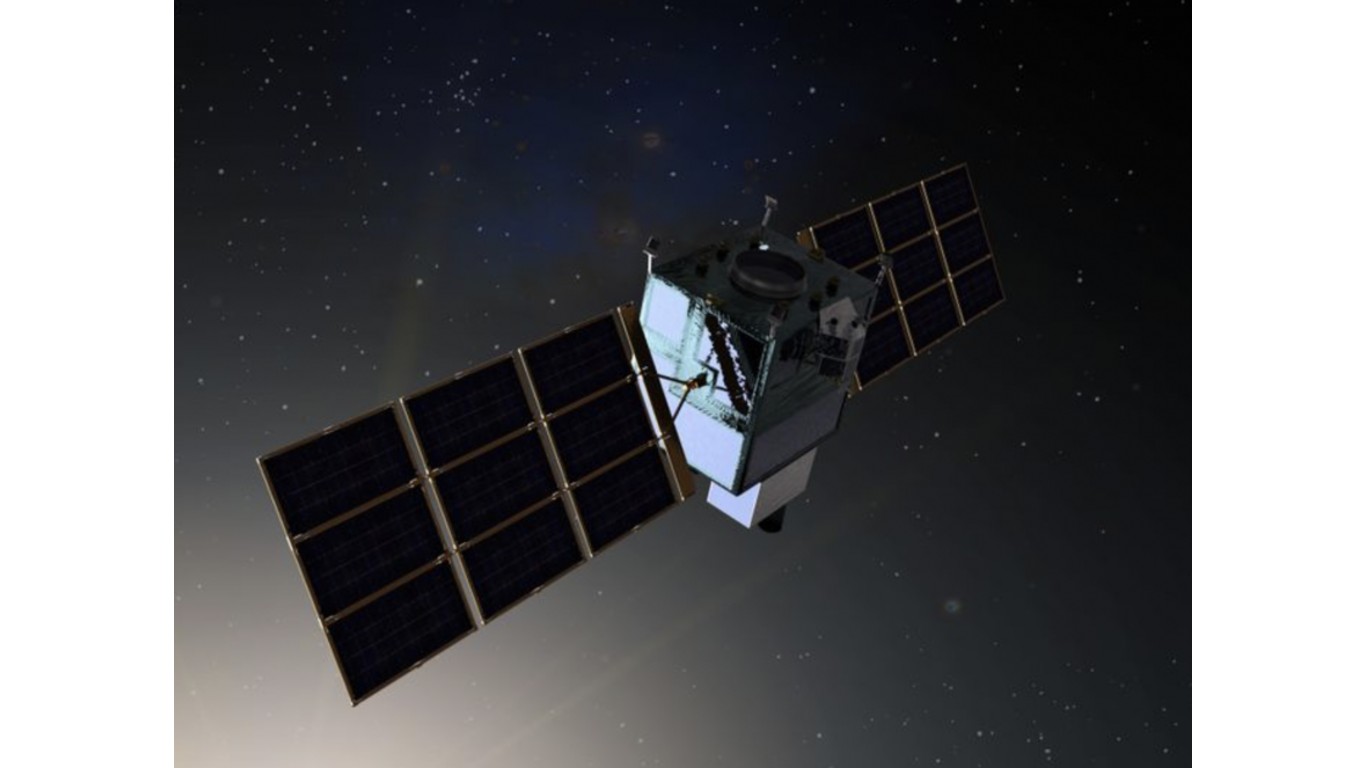
1. OPIR Space Based Missile Warning Systems
> R&D, testing, and evaluation budget, FY 2024: $4.9 billion
> Program spending, FY2022-FY2024: $12.2 billion
> Service branches: Space Force
> Primary contractor(s): Raytheon Integrated Defense Systems
The U.S. is replacing an existing network of infrared, satellite-based sensors that went into service in the mid-1990s, with this next generation Overhead Persistent Infrared (OPIR) system. It will provide warning of ballistic missile launches targeting the United States from any location on the planet. Initial launch of the first new OPIR satellite is planned for 2025 but could be delayed, according to a U.S. Government Accountability Office report from 2021.
Credit card companies are handing out rewards and benefits to win the best customers. A good cash back card can be worth thousands of dollars a year in free money, not to mention other perks like travel, insurance, and access to fancy lounges. See our top picks for the best credit cards today. You won’t want to miss some of these offers.
Flywheel Publishing has partnered with CardRatings for our coverage of credit card products. Flywheel Publishing and CardRatings may receive a commission from card issuers.
Thank you for reading! Have some feedback for us?
Contact the 24/7 Wall St. editorial team.
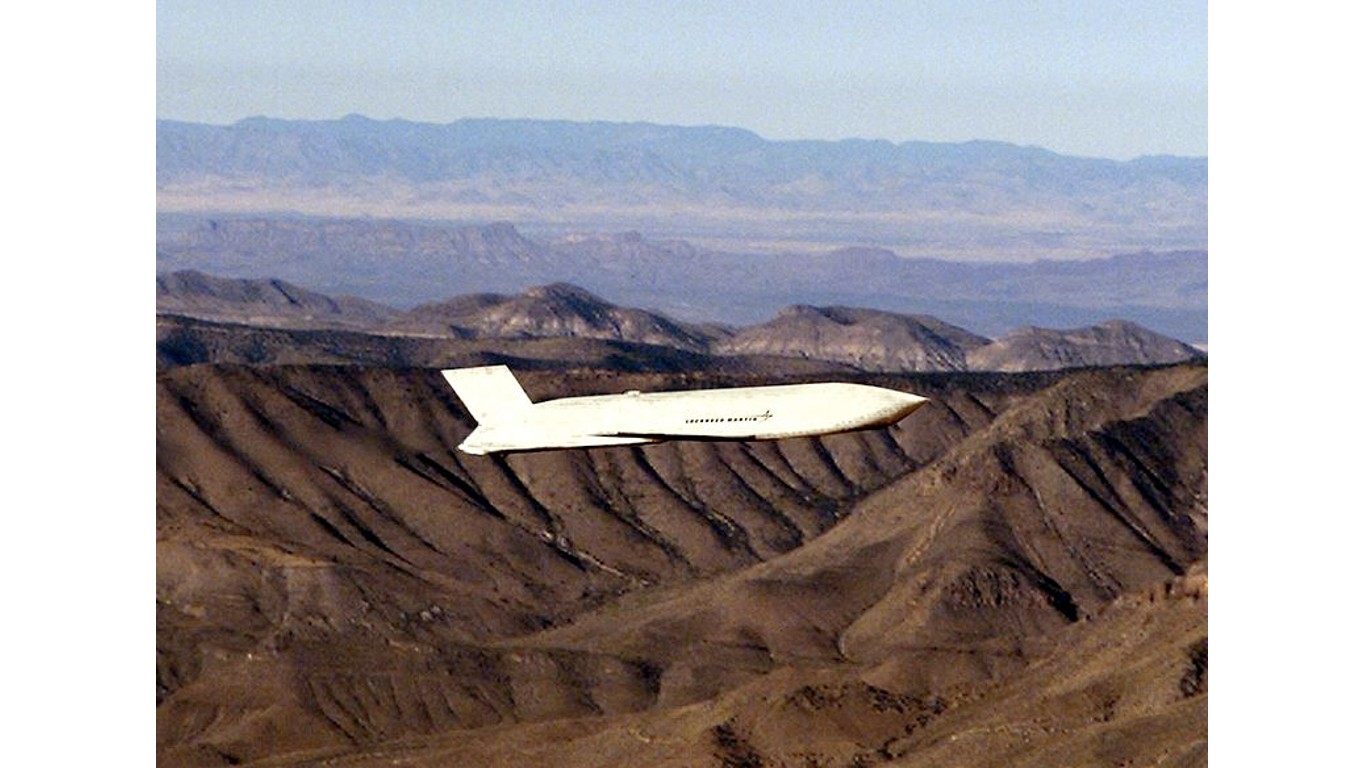 24/7 Wall St.
24/7 Wall St.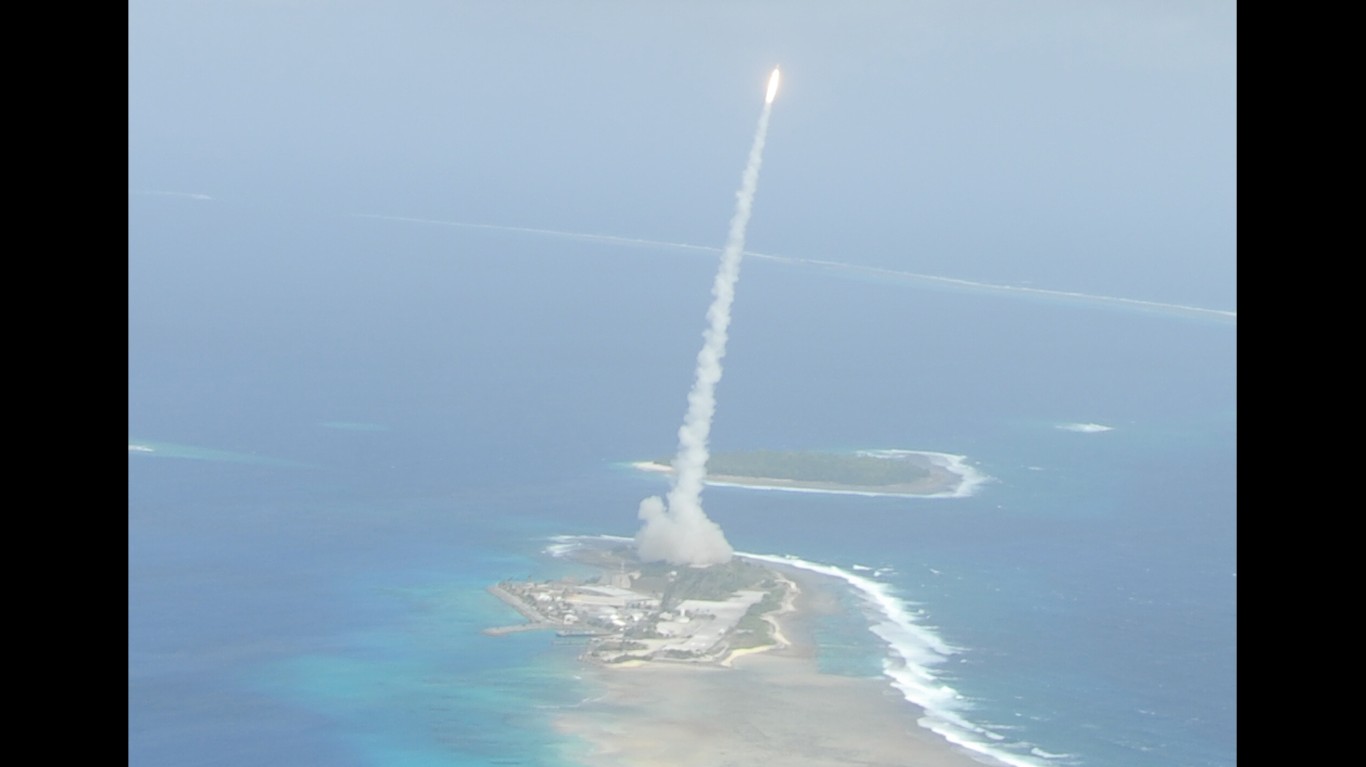
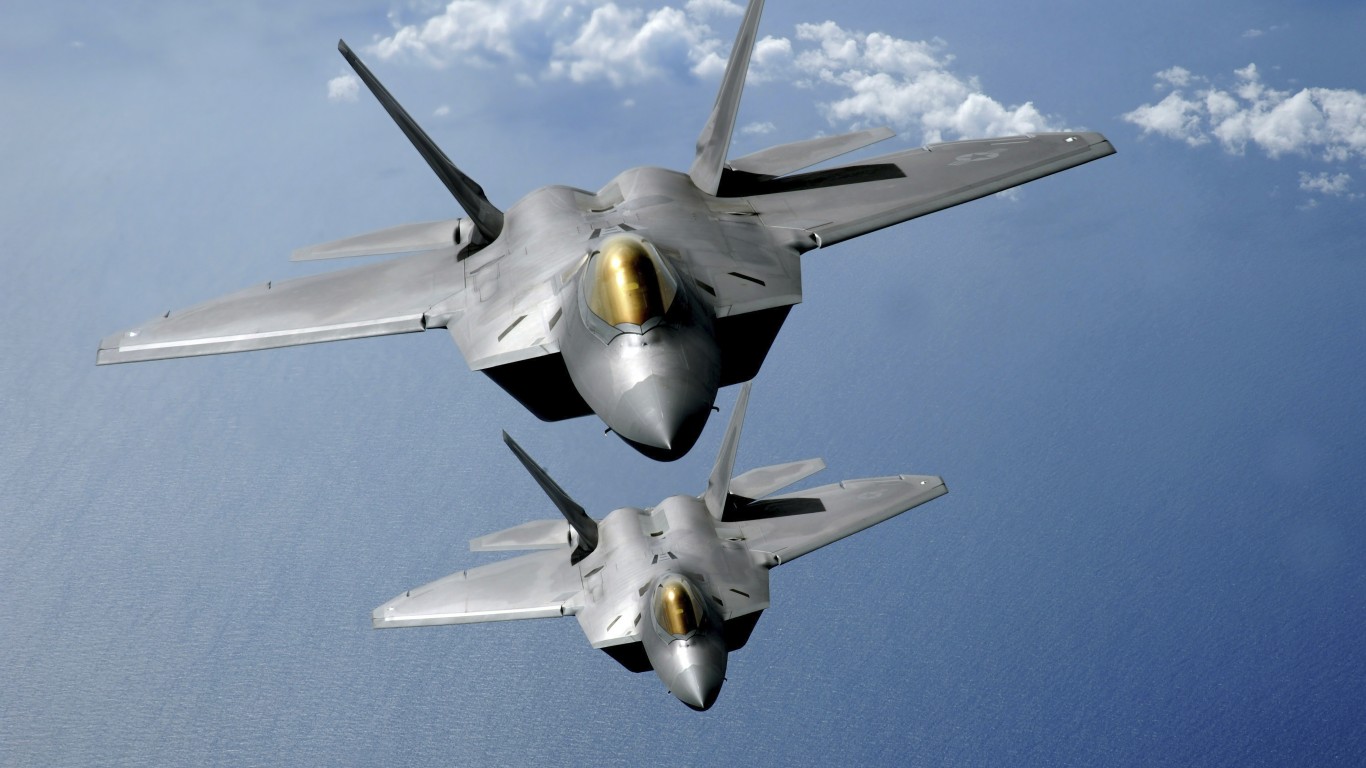 24/7 Wall St.
24/7 Wall St.


